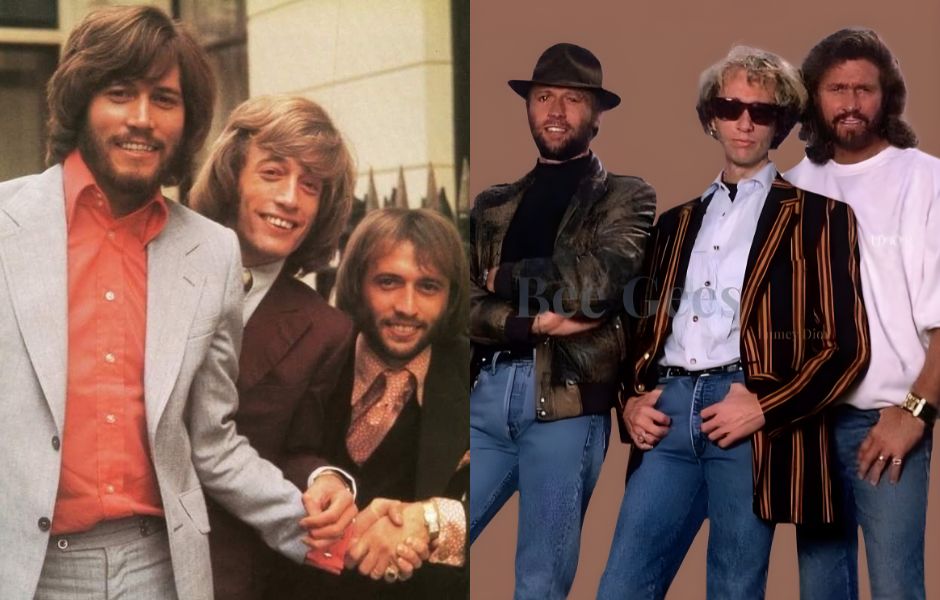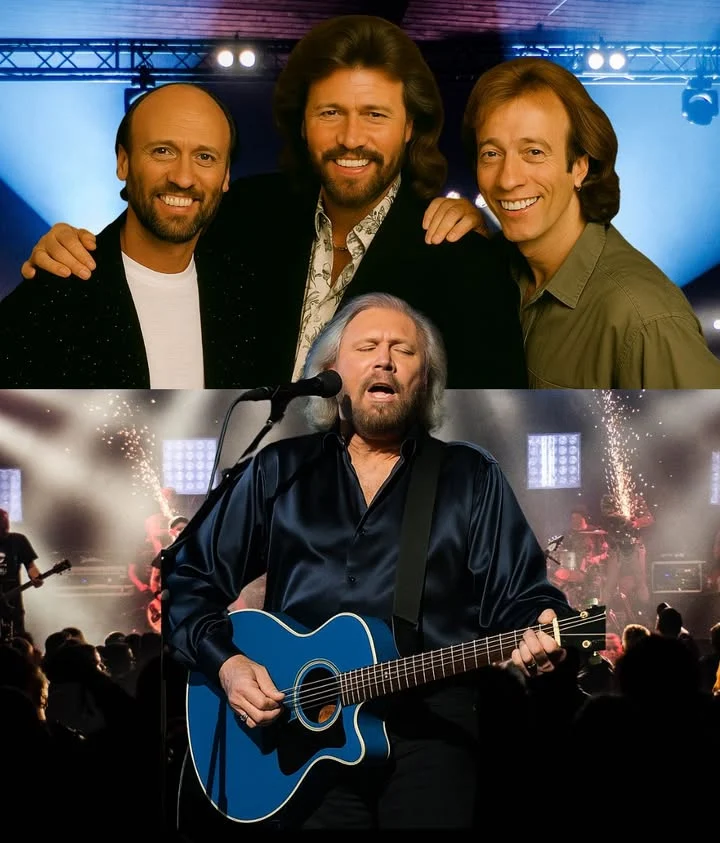
At eighty years old, when most voices soften and stages grow dimmer, Barry Gibb confronts the spotlight with a vitality and grit that belies the clock. The last living member of the Bee Gees, a band whose harmonies once defined an era, Barry’s recent live performance of “Home Truth Song” was not just a throwback — it was a blaze of raw, unfiltered artistry that reminded the music world that some flames never lose their heat.
The evening began quietly, almost reverently, as the soft notes of “Home Truth Song” slipped through the speakers. The audience, a mosaic of ages and backgrounds, sat hushed, the air thick with anticipation. As Barry’s familiar cadence filled the room, the song’s reflective tenderness seeped into the walls, framed by the silver gleam of his hair catching the golden spotlight. What followed was a breathtaking transformation: the melody burst into a fiery chorus with an emotional explosion that pressed the crowd to their feet and hearts racing. Barry’s voice—weathered but immensely powerful—held something sacred: a rare blend of power and vulnerability learned only through a lifetime lived at the mercy of both fame and loss.
Originally from the Bee Gees’ 1972 album To Whom It May Concern, “Home Truth Song” is perhaps one of the group’s most underrated compositions. Unlike the disco anthems that later catapulted them to super-stardom, this track is a sober reckoning, stripped down to the bare bones of honesty. It speaks not of dreams or idealism but of confronting realities head-on. When Barry sang the line “Don’t ask me where I’m going, I’ll just tell you where I’ve been,” you could almost hear decades of stories poured out in those words — the years of brotherhood with Robin and Maurice, the joys of creation, and the shadows of loss.
It was a moment heavy with presence and memory. The ghosts of his brothers—whose harmonies once formed the spine of the Bee Gees’ sound—felt palpable in the air, as if they were there on stage harmonizing with him again. The room didn’t just witness a performance; it observed a man wrestling with and honoring the full scope of his life. “Barry doesn’t perform songs — he becomes them,” one critic observed. “At eighty, he sings with the urgency of a man who knows how fleeting beauty can be, and that’s what makes it so powerful.”
Watching Barry in that moment was watching a master storyteller unfold a lifetime of emotions in just a few minutes—every note carrying the weight of anniversaries, both painful and joyous. The energy in the room was electric, uniting younger fans, who many came to the Bee Gees through their family’s reverence, with those who travelled the decades alongside Barry, witness to an exhilarating musical journey. In a world obsessed with the new and disposable, Barry’s authenticity shone like a beacon. He wasn’t clinging to past glory; instead, he was breathing life into it, transforming memory into melody, and making it resonate again today.
The audience’s response was profound and visceral. After the final chord faded into the night, silence hung—a pause thick with awe and emotion. Then came the applause: raw, thunderous, and unending. Fans were moved not by nostalgia but by genuine admiration for someone who had bared his soul and reminded everyone what music at its purest feels like. As one concertgoer put it, “It felt like watching history breathe—like seeing the soul of music itself standing right in front of you.”
This night was no mere concert. It was a declaration from Barry Gibb that passion does not age and artistry does not wane with time. His performance held the steady burning flame that once set the world ablaze in harmony, a flame that endures in the heart of the last Bee Gee. It was a testament to the power of truth in music—one man’s remarkable ability to channel his entire life into a song that continues to resonate, five decades later.
When Barry Gibb sings, it’s more than music. It’s legacy. It’s truth. It’s life itself — relentless, genuine, and timeless.
